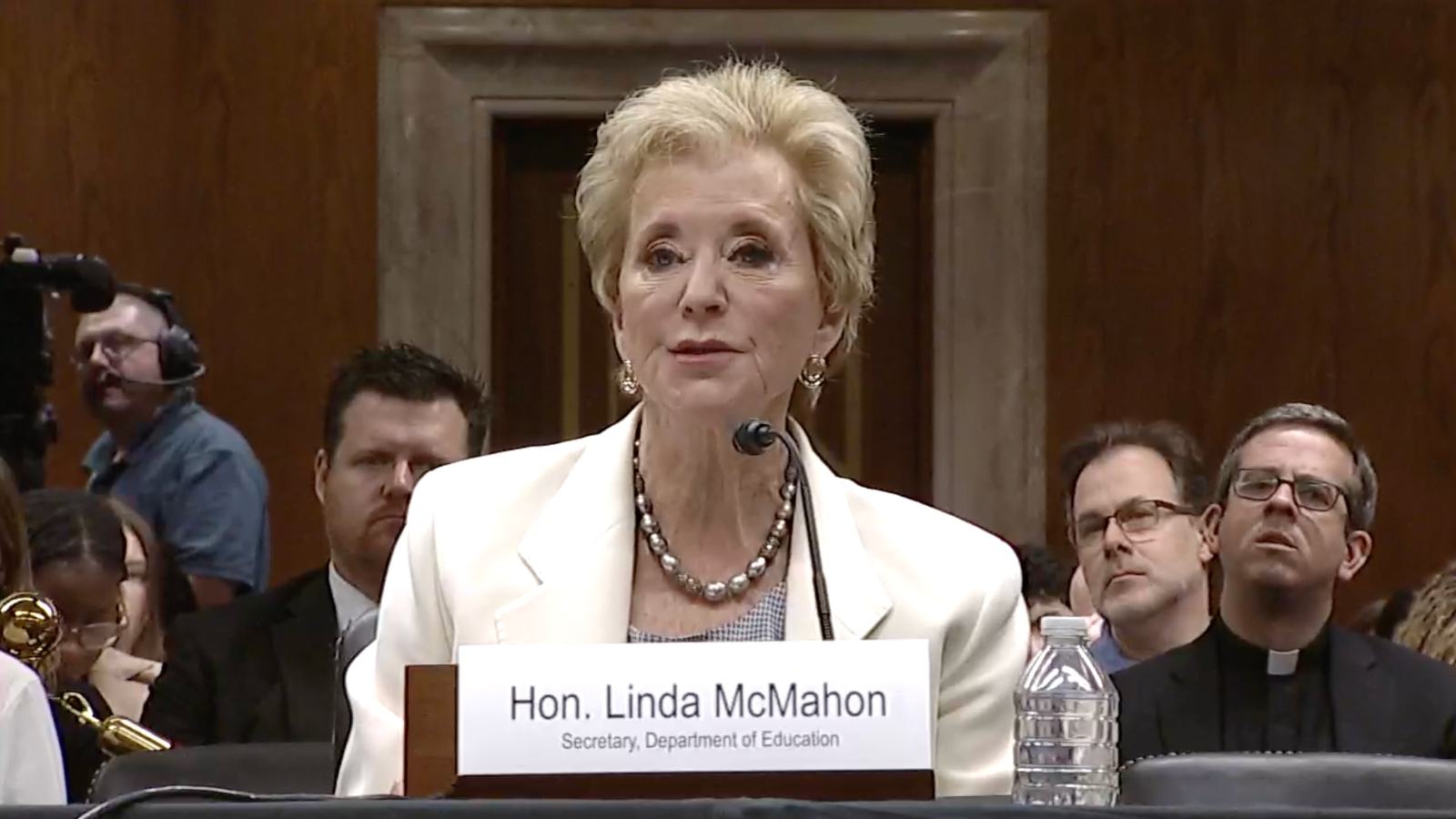DC Bureau
Senators Push Back Against Trump’s Bid to Eliminate Educational Programs for Low-Income Students

WASHINGTON — U.S. senators from both parties challenged Education Secretary Linda McMahon on Tuesday regarding the Trump administration’s plan to eliminate funding for essential programs aimed at supporting disadvantaged and low-income students.
During her testimony before the Senate Appropriations Subcommittee, McMahon defended the sweeping changes proposed in President Trump’s fiscal year 2026 budget, which outlines $12 billion in cuts for the Education Department. This review follows her earlier session with the House panel in May, highlighting the ongoing dialogue around federal education financing.
McMahon characterized the budget request as a pivotal move toward reducing federal bureaucracy, curbing waste, and decentralizing education efforts back to states and local authorities. However, the decision to cut programs like the Federal TRIO Programs and GEAR UP, which had respective budgets of nearly $1.2 billion and $388 million in fiscal year 2024, has raised concerns among lawmakers on both sides of the aisle.
The Federal TRIO Programs provide outreach and support for students from disadvantaged backgrounds, while GEAR UP focuses on preparing low-income students for higher education opportunities. Critics cite the programs’ historical effectiveness in supporting first-generation and low-income students as a reason to maintain funding.
Senator Susan Collins, chair of the Senate Appropriations Committee, expressed strong disapproval of the proposed cuts. Her sentiments were echoed by Senator Shelley Moore Capito, who underscored the necessity of these programs for students lacking support in their educational ambitions.
While acknowledging the programs’ potential impact, McMahon emphasized a perceived lack of accountability and effectiveness over recent years, suggesting that states and localities are better suited to manage these initiatives. Senator Jeff Merkley countered this argument, asserting that established benchmarks and performance reporting are required for program grantees, challenging McMahon’s view of accountability.
The recently unveiled budget proposal further suggests a reduction of nearly $1,700 in maximum yearly Pell Grant awards, alongside a plan to consolidate 18 K-12 education grant programs into a single $2 billion formula grant aimed at providing states with greater financial flexibility. Additionally, there’s a proposal to increase funding to expand charter schools nationwide.
The budget rollout follows a federal judge’s ruling in May, which mandated the reinstatement of over 1,300 employees previously let go from the Education Department via a targeted reduction, highlighting key challenges for the administration’s educational objectives.


















